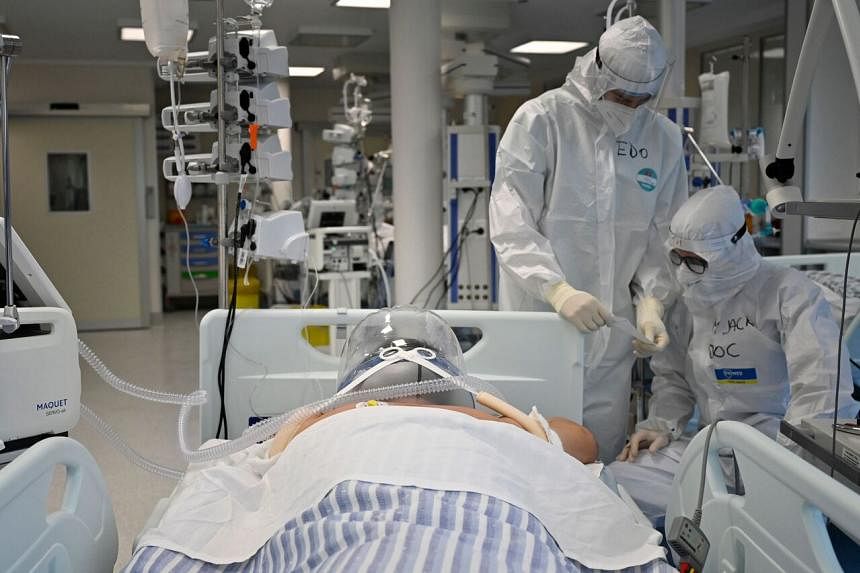JOHANNESBURG (BLOOMBERG) - People who have had a documented Covid-19 infection are more likely to be hospitalised or develop diabetes or hypertension in the months after their illness, an indication of the severity of so-called long Covid, according to a study by South Africa's biggest health insurer.
Members of Discovery Health, monitored for about a year after contracting Covid-19, were more likely to seek care for the two chronic diseases, Ms Shirley Collie, Discovery's chief health analytics actuary, said in an interview on Wednesday (June 8).
The risk of hospitalisation, for any reason, increased 10 per cent to 20 per cent, she said. Still, the risk of dying is no higher. Discovery has about 3.7 million members.
"We don't observe any increased mortality risk for the recovered population," she said. "That's very comforting."
Still, "the other things we are observing in the data is this increased risk of registering for diabetes, and getting a diabetes diagnosis, as well as a hypertension diagnosis. So that is quite marked in terms of the increased risk", she said.
Medical scientists around the world have been struggling to understand long Covid-19, where many of those who have had even mild infections present with a range of symptoms for many months after their illness.
One in five Americans have had lingering health problems from Covid-19 after first testing positive, according to a report published by the Centres for Disease Control and Prevention last month.
Data from a survey of 7,000 Discovery Health members who recovered from acute Covid-19 showed:
A 1.38-fold higher risk of developing diabetes within two to 12 months of recovering from Covid-19.
A 1.11-fold higher risk of developing hypertension in that period.
A 2.8-fold higher hospital admission risk in the first month after recovering from an acute Covid-19 infection and a 1.5 times higher risk two to 12 months after recovery.
31 per cent of those who recovered from Covid-19 experienced headaches, 14 per cent experienced problems sleeping and shortness of breath, 12 per cent reported dizziness, 11 per cent a lack of concentration and 10 per cent muscle and joint pain.
43 per cent reported difficulties in performing activities necessary for daily living.
30 per cent had problems concentrating, 20 per cent walking, 16 per cent had problems with their sight and difficulties with hearing, communicating and self-care were also reported.
There is more work to be done on whether the higher risk of diabetes and hypertension is because more people are seeking care and therefore are more likely to be diagnosed with the ailments, Ms Collie said.
Her team is considering whether the corticosteroid treatment that some people receive in the acute phase of Covid-19 may influence the outcomes. Having a Covid-19 vaccination prevents a lot of those problems, she said. "If you had a vaccine prior to your Covid-19 infection, we don't see this long-term trend," she said. "Then, for people who were unvaccinated at the time of infection and subsequently get vaccinated, we note almost a reversion to the population rate."
The data is yet to be released and hasn't been peer reviewed.
Preliminary findings show that the Covid-19 shot produced by Pfizer and BioNTech SE gives protection against severe disease from the recently discovered strains.
South Africa has the highest number of recorded Covid-19 cases and deaths in Africa. While more than 100,000 people have officially died of the disease, excess death data, a measure of mortality against a historical average, shows that three times as many people may have perished from the virus.











